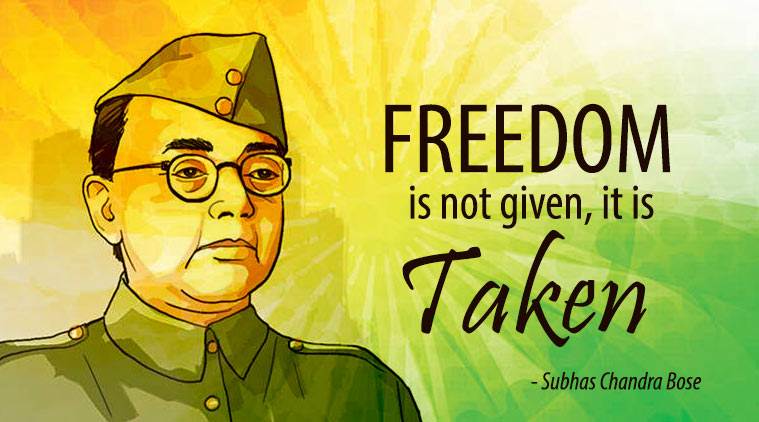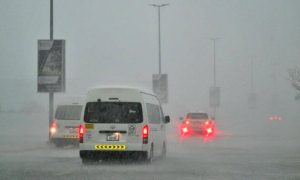Netaji Subhas Chandra Bose, a Congress leader-turned-Indian nationalist hero who controversially courted Germany and Japan and courageously led an underprepared but determined force to fight the British during World War 2, was born on January 23, 1897 in Cuttack, which was then a part of the Bengal Province.
The ninth of 14 children of Prabhavati Devi and advocate Janakinath Bose, Bose completed his schooling from the Protestant European School and the Ravenshaw Collegiate School. In 1913 he stood second in the matriculation examination and secured admission to Calcutta’s prestigious Presidency College, where he studied for a while. He was attracted to nationalist causes from an early age.
He obtained a Bachelor’s degree in philosophy and went to England in 1919 with the aim of appearing in the Indian Civil Services (ICS) examination. Though he stood fourth in the ICS examination, he resigned from the Civil Service in 1921 as he did not want to serve under the British rule.
After returning to India he got involved in the nationalist movement. He worked as a journalist and as a publicist for the Bengal wing of the Indian National Congress. Recognised as a rising star in politics, he became president of the All India Youth Congress and secretary of the Bengal State Congress in 1923.
He edited a newspaper called Forward, founded by his intellectual mentor Chittaranjan Das, who was a proponent of aggressive nationalism. For a while Bose headed the Calcutta Municipal Corporation. In 1925 he was sent to jail for nationalist activities.
In 1927 he became the Congress general secretary and got to know senior Congress leaders like Jawaharlal Nehru. After spending another term in jail he became Calcutta’s mayor.
Bose went to Europe in the 1930s at a time when the clouds of another World War had started hovering over the continent. This was when he started writing his book The Indian Struggle. He met several leaders of varying ideologies in many countries.
Bose also met the love of his life, Emilie Schenkl, an Austrian woman, in Europe. When he was eventually compelled to return to India, leaving Emilie was a difficult decision.
In his biography of his granduncle Subhas Chandra Bose, the historian Sugata Bose writes: “Unbeknownst to the world, the greatest difficulty for Bose in leaving Europe was not the certainty of imprisonment in India, but the pain of separation from the woman he loved. As he prepared to go home, he wrote Emilie a letter that was a forthright confession of his feelings. ‘Even an iceberg sometimes melts,’ he began, ‘and so it is with me now . . . I do not know what the future has in store for me. May be, I shall spend my life in prison, may be, I shall be shot or hanged . . . May be I shall never see you again . . . but believe me, you will always live in my heart, in my thoughts and in my dreams’.”
Acknowledged as a leading national figure after his return to India, Bose was chosen Congress president in 1938. But later he quit the presidency after differences with Mahatma Gandhi. Bose, however, had a lot of respect for Gandhi. He once said: “[I] have on some occasions felt constrained to differ from Mahatma Gandhi on public questions, but I yield to none in my respect for his personality . . . I do not know what sort of opinion Mahatmaji has of me. But whatever his view may be, it will always be my aim and object to try and win his confidence for the simple reason that it will be a tragic thing for me if I succeed in winning the confidence of other people but fail to win the confidence of India’s greatest man.”
When World War 2 started, Bose was in favour of a mass public movement to protest the British decision to drag India into war without taking Congress leaders into confidence.
But as Gandhi was not enthused with Bose’s plan, the latter led major protests in Calcutta against the British. Subsequently Bose was first jailed by the authorities and later kept under virtual house arrest. But he managed to give the security a slip and escaped to Germany through Afghanistan and the Soviet Union.
In Germany he became part of the Special Bureau for India that broadcast on the Azad Hind Radio. In one such typical broadcast, Bose said: “My Indian brothers, it is not worthwhile to hope that the British will ever be able to help you in keeping hostilities beyond the frontiers of India . . . The British empire was founded on relentless plundering of weak nations. So long as it is their power they will persist in the exploitation of subject nations. If the Indians took it to their heart that their country should be safe from danger, their first duty would be to carry out a thorough destruction of British military objectives in India, and prevent India’s raw material, wealth and youth from being harnessed by the British to their war effort.”
He also established the Free India Centre at Berlin and founded the Indian Legion comprising Indian prisoners of war who had earlier been part of the British Indian army.
But unsure of how committed Germany was to the cause of India’s freedom, he left for Japan in February 1943.
By the time Bose turned his attention to the Asian Far East, the Indian National Army (INA) had already been established with the blessings of the Japanese, with Indian nationalists based in East and Southeast Asia such as Pritam Singh Dhillon, Mohan Singh and Rash Behari Bose playing an important role in its evolution. But the INA in its initial avatar was disbanded. When Bose arrived, it was revived and he took charge of the force.
He famously told a gathering of Indians in Burma on 4 July 1944: “Give me blood, and I shall give you freedom!”
One of the major military campaigns the INA fought, alongside the Japanese, was in India’s northeast. However, after the Japanese defeat at Kohima and Imphal, the INA had to retreat. It fought the British elsewhere too, including in Burma. The tide of the World War 2 had started turning decisively in favour of the Allies and when Japan lost control of Rangoon, the INA suffered a body blow. Most of the INA troops surrendered to the British.
It is tempting to dismiss the INA as a militarily ineffective force. But that would be missing the historical context and the enormous symbolic significance of the first — and only — organised military campaign launched by Indians against the British empire after the revolt of 1857. The soldiers of the INA became national heroes; and Bose, despite his flirting with German and Japanese imperialism, a symbol of aggressive Indian nationalism.
Though Subhas Chandra Bose is said to have died on 18 August 1945 after his plane crashed in Formosa (now Taiwan), conspiracy theories surrounding his death sprung up almost immediately, and never ceased. Multiple inquiries into his ‘disappearance’ have, however, not produced a credible alternative theory on his death.
Speculating on what might have happened if Bose had survived the crash and returned to national politics in independent India, the renowned historian Ramachandra Guha wrote in The Telegraph in October 2009: “The legacy of the freedom struggle would still have carried the Congress to victory in the first general elections, and perhaps even the second. But after that the voter would have begun to look for alternatives. Now Subhas Chandra Bose had greater countrywide appeal than Kripalani, Lohia, et al. A party led by him might, by 1957, and definitely by 1962, have given the Congress a real run for its money.”
























 WhatsApp us
WhatsApp us
Pingback: Tess ter Horst
Pingback: دردشة
Pingback: Vineland emergency plumber
Pingback: so de
Pingback: huong dan dang ky 12bet
Pingback: fentanyl patch for sale online overnight shipping
Pingback: Blazing Trader Review
Pingback: bitcoin blazing trader
Pingback: Bitcoin Era Review 2020
Pingback: Digital Transformation Services
Pingback: best cbd oil for dogs with anxiety
Pingback: Regression Testing Solutions
Pingback: fake rolex
Pingback: replica rolex
Pingback: sis meaning in tamil
Pingback: Smoke Testing Services
Pingback: cc shop legit
Pingback: vendor dumps pin
Pingback: Vanessa Getty wikipedia
Pingback: Why Cant I Download Chaturbate Males On Upstore
Pingback: best dumps website 2022
Pingback: dmt diamond machining technology
Pingback: sbobet
Pingback: maxbet
Pingback: henry big boy for sale
Pingback: wow slot
Pingback: sbobet
Pingback: Alexa Nikolas fraud
Pingback: Buy Psilocybe Azurescens Mushroom Australia
Pingback: Leverage
Pingback: BINANCE $
Pingback: a fantastic read
Pingback: Booth contractor Bangkok
Pingback: wedding cake strain
Pingback: superkaya88